On October 20, 2020, the European Parliament (EP) adopted three resolutions on :
1/ a framework of ethical aspects of artificial intelligence (AI), robotics and related technologies;
2/ a civil liability regime for AI and;
3/ a response to intellectual property rights challenged by these systems.
These resolutions followed the EP’s Committee on Legal Affairs publication of three reports on the 2nd, 5th and 8th of October 2020, on intellectual property rights for the development of AI systems, a civil liability regime and the ethical aspects of AI, robotics and related technologies respectively. The EP’s Committee on Legal Affairs called on the European Commission for a motion for a resolution of these different issues.
Following their adoption, the European Parliament now ‘‘requests the Commission to submit a proposal for a Regulation based on the detailed recommendations set out’’.
- Ethical aspects of artificial intelligence, robotics and related technologies
Based on Ibán García del Blanco’s report, the resolution focuses on seventeen different points. The resolution begins by highlighting the need for a human-centric and a human-created AI approach. Highlighting the necessity of developing, deploying and monitoring an ethical AI approach, the EP highlights that AI systems should be respectful of the current European regulation. It states:
‘‘(…) that, without prejudice to sector-specific legislation, an effective and harmonised regulatory framework based on Union law, the Charter and international human rights law, and applicable, in particular, to high-risk technologies, is necessary in order to establish equal standards throughout the Union and effectively protect Union values;’’
In addition to highlighting the need to establish proper risk-assessments and risk-based approaches (evoking the “high risk” perspective of the European Commission White Paper), the text highlights the need for proper safety features, to ensure both the transparency and accountability of AI systems. Such systems should also not be biased or discriminatory, so as to guarantee full respect of fundamental rights. In that sense, the EP considers that AI should not increase discrimination and bias, rather that it should aim to ensure social responsibility and gender balance, issues currently at the core of numerous European societies. In the same vein, AI should also help in terms of the quest to respect the environment and sustainability.
The text also provides interesting and important guidance on the respect of privacy, especially where biometric recognition systems are concerned. In this respect, EP underlines that good governance should be ensured, particularly in situations where consumers might be the target of algorithmic systems.
Moreover, the EP emphasizes that some additional areas, such as security and defence, transport, employment, workers’ rights, digital skills, education, culture and the national supervisory authorities, should be the object of particular and sectoral focus.
Finally, the text highlights the need for both European coordination and international cooperation, and underlines the possibility of establishing European certification of ethical compliance in order to enable better harmonization among EU Member States.
- Civil liability Regime for Artificial Intelligence
The resolution on a civil liability regime for AI was mainly based on Axel Voss’s report and followed the release of the European Parliament Research Service study on civil liability for AI at the end of September 2020. In this resolution, the EP affirms that there is no need for a complete revision of the ‘‘well-functioning liability regimes’’ currently in place among EU Member States. Nevertheless, in highlighting the ‘‘complexity, connectivity, opacity and vulnerability, the capacity of being modified through updates, the capacity for self-learning and the potential autonomy of AI-systems, as well as the multitude of actors involved’’, the EP reiterates that civil liability is one of its main challenges.
The resolution acknowledges that the ‘‘existing fault-based tort law of Member States offers in most cases a sufficient level of protection for persons’’. However, due to the complex, intractable and impecunious nature of the third-party, additional guidelines are still needed. Thus, the resolution focuses on civil liability claims against the operator of the AI-system: it affirms that the operator’s liability is justified by the fact that they are responsible for the risk associated with the AI system as the operator might be, in many cases, the first point of contact for the victim.
The resolution also highlights the fact that various liability rules should be applied and be based on a risk-based approach. However, clear criteria and definitions are still currently being discussed with the intention of ensuring a high level of legal certainty within the EU.
The final part of the text reiterates one of the main considerations raised by European Commission’s White Paper, as it highlights the crucial role of insurance companies and the need for appropriate coverage of algorithmic and AI-based systems.
- Intellectual property rights for the development of artificial intelligence technologies
The last resolution, based on Stéphane Séjourné’s Report focuses on the intellectual property rights at stake in the development of AI technologies, while stressing that this topic has not been tacked by the European Commission yet.
‘‘1. Takes note of the Commission White Paper on ‘Artificial Intelligence – A European approach to excellence and trust’ and the European Data Strategy; stresses that the approaches outlined therein are likely to contribute to unlocking the potential of human-centred AI in the EU; notes, however, that the issue of the protection of IPRs in the context of the development of AI and related technologies has not been addressed by the Commission, despite the key importance of these rights;’’
The EP underlines the main legal challenges raised by AI technologies in terms of copyright and intellectual property rights. Its recommendations, which are the first of their kind in this particular field, aim to tackle these important issues – often forgotten at EU level – by providing guidelines.
Sources:
MEB.



